Gardening in Beacon Hill: Cultivating Green Spaces in the Heart of the City
Introduction to Gardening in Beacon Hill
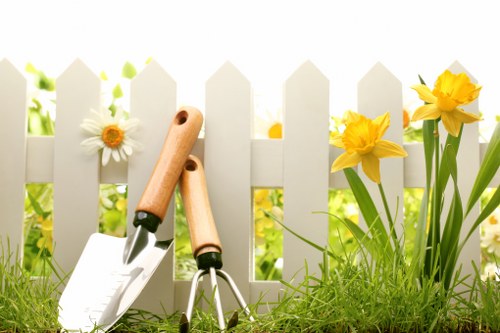
Beacon Hill, renowned for its historic charm and picturesque streets, offers a unique environment for gardening enthusiasts. Whether you’re a seasoned gardener or a novice looking to cultivate your first green space, Beacon Hill provides an ideal backdrop with its diverse climate and community spirit.
Gardening in this area isn’t just a hobby; it’s a way to connect with nature amidst urban living. The lush gardens, vibrant flower beds, and well-maintained parks are a testament to the residents’ dedication to maintaining their green spaces.
In this comprehensive guide, we will explore the best practices, plant selections, and local resources available to help you create a thriving garden in Beacon Hill.
Understanding the Climate and Soil of Beacon Hill
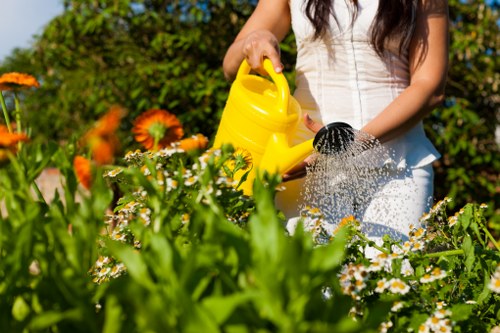
Beacon Hill experiences a temperate climate with distinct seasons, which significantly influences gardening activities. The region enjoys warm summers, cold winters, and ample rainfall, creating an ideal environment for a variety of plants.
**Soil quality** is another critical factor. The soil in Beacon Hill tends to be rich in nutrients, supporting the growth of both native and exotic plants. However, it’s essential to conduct a soil test to determine pH levels and nutrient content, ensuring optimal conditions for your garden.
By understanding the local climate and soil composition, gardeners can make informed decisions about plant selection and garden layout, leading to a more successful gardening experience.
Choosing the Right Plants for Beacon Hill Gardens
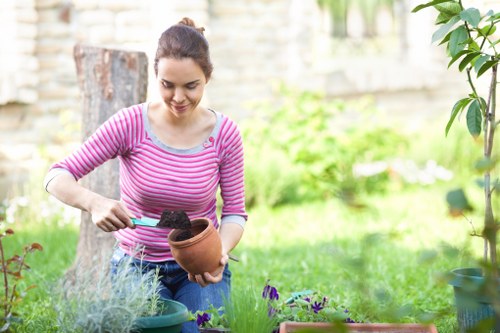
Selecting the appropriate plants is crucial for a thriving garden. Beacon Hill’s climate allows for a diverse range of flora, from flowering annuals to perennial shrubs.
- Perennials: Plants like hostas, daylilies, and coneflowers provide long-lasting beauty with minimal maintenance.
- Annuals: For vibrant, season-long color, consider marigolds, petunias, and impatiens.
- Shrubs: Boxwoods, hydrangeas, and azaleas add structure and depth to garden landscapes.
Incorporating native plants can also enhance the garden’s resilience and reduce maintenance efforts. Native species are well-adapted to the local environment, requiring less water and care while supporting local wildlife.
Designing Your Garden Layout
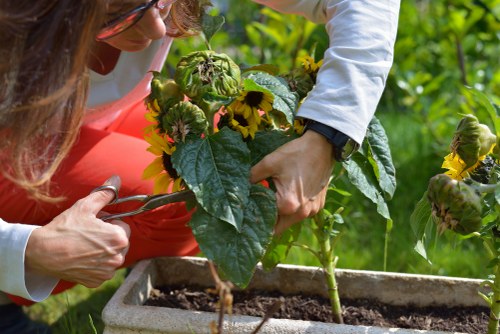
A well-thought-out garden layout not only enhances the aesthetic appeal but also promotes healthy plant growth. Consider the following elements when designing your garden:
- Sunlight: Assess the sunlight patterns in your garden area to place sun-loving plants accordingly.
- Water Drainage: Ensure proper drainage to prevent waterlogging and root rot.
- Plant Height and Spread: Arrange plants based on their mature size to avoid overcrowding.
Integrating pathways, seating areas, and decorative features can also create a more inviting and functional garden space.
Gardening Techniques for Success
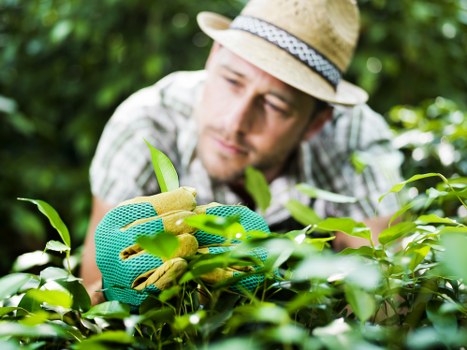
Adopting effective gardening techniques can significantly improve the health and productivity of your garden. Here are some essential practices:
- Mulching: Applying mulch helps retain soil moisture, suppress weeds, and regulate soil temperature.
- Pruning: Regular pruning promotes healthy growth and prevents disease by removing dead or damaged branches.
- Composting: Creating a compost pile provides a natural source of fertilizer, enriching the soil with essential nutrients.
Implementing these techniques ensures that your garden remains vibrant and resilient throughout the year.
Local Gardening Resources in Beacon Hill
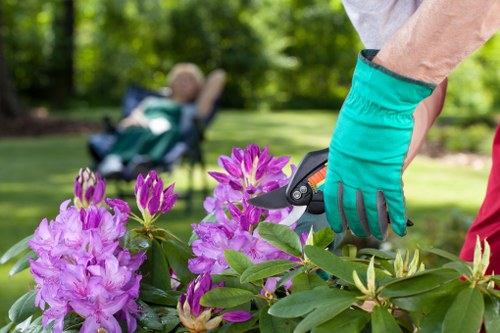
Beacon Hill boasts a wealth of local resources to support gardeners. From nurseries to community gardens, these resources provide valuable tools and knowledge to enhance your gardening experience.
- Local Nurseries: Access a variety of plants, seeds, and gardening supplies tailored to the Beacon Hill climate.
- Community Gardens: Participate in shared gardening spaces, fostering a sense of community and collaboration.
- Workshops and Classes: Attend educational sessions to learn about advanced gardening techniques and plant care.
Leveraging these resources can help you overcome gardening challenges and achieve a flourishing garden.
10-15 Closest Areas to Beacon Hill for Gardening Services
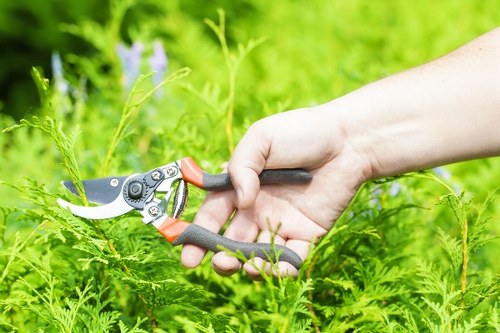
Beacon Hill is surrounded by numerous neighborhoods that offer exceptional gardening services and opportunities. Here are some of the closest areas to consider:
- Brookline: Just west of Beacon Hill, Brookline offers extensive garden centers and professional landscaping services.
- Back Bay: Known for its elegant gardens and green spaces, Back Bay provides access to high-end gardening resources.
- Copley Square: The proximity to Copley Square means access to community gardens and urban farming initiatives.
- South Boston: South Boston features diverse gardening communities and local nurseries catering to various plant needs.
- Charlestown: With its historic charm, Charlestown offers unique gardening opportunities in historic homes and gardens.
- Jamaica Plain: A vibrant neighborhood with a strong emphasis on community gardens and sustainable gardening practices.
- Fenway: Close to Beacon Hill, Fenway provides ample green spaces and gardening events for enthusiasts.
- West End: The West End offers modern gardening solutions and access to contemporary garden design services.
- North End: Known for its tight-knit community, the North End has local gardening clubs and shared garden spaces.
- Downtown: Downtown’s urban environment provides unique container gardening and rooftop garden opportunities.
- Roxbury: Roxbury features community-based gardening programs and access to diverse plant varieties.
- Brighton: A bit further out, Brighton offers spacious gardens and professional landscaping services.
- Mission Hill: Close to Beacon Hill, Mission Hill provides access to educational gardening programs and resources.
- Charleston Street Area: This area boasts beautiful private gardens and access to local gardening networks.
- Fenway-Kenmore: With its mix of residential and academic institutions, Fenway-Kenmore offers innovative gardening projects and research opportunities.
Each of these areas offers unique features and resources, making them ideal for gardeners looking to expand their green horizons beyond Beacon Hill.
Seasonal Gardening Tips for Beacon Hill
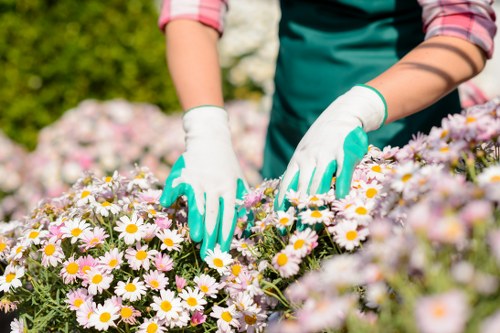
Gardening in Beacon Hill requires adapting to the changing seasons to maintain a healthy and vibrant garden throughout the year.
Spring
Spring is the perfect time to plant new flowers and vegetables. Prepare the soil by removing weeds and adding compost to enrich it. Plant early bloomers such as tulips and daffodils to add color after winter.
Summer
During the summer months, focus on maintaining your garden by watering regularly and providing shade to sensitive plants. Incorporate heat-tolerant plants like lavender and sunflowers to thrive in the warmth.
Autumn
Autumn is ideal for harvesting vegetables and preparing your garden for winter. Mulch beds to protect plant roots and plant bulbs for next spring’s blooms.
Winter
In winter, protect your garden by covering delicate plants and using winter-hardy varieties. This is also a great time to plan and design your garden for the upcoming year.
Eco-Friendly Gardening Practices
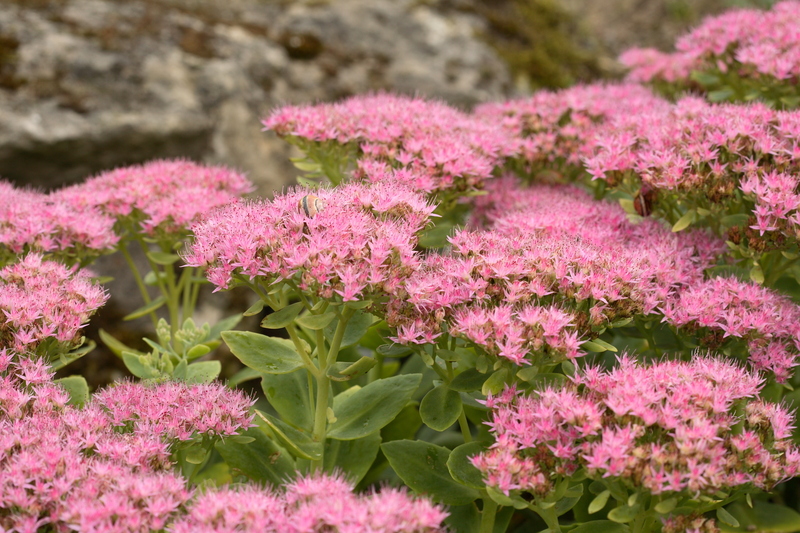
Adopting eco-friendly gardening practices not only benefits the environment but also promotes a sustainable and healthy garden.
- Composting: Turn kitchen scraps and garden waste into nutrient-rich compost to reduce waste and enrich soil.
- Rainwater Harvesting: Collect rainwater to use for irrigation, conserving water and reducing your water bill.
- Organic Pest Control: Use natural pest repellents and encourage beneficial insects to manage pest populations without harmful chemicals.
- Native Plants: Incorporate native species that require less water and are more resistant to local pests and diseases.
Implementing these practices ensures that your gardening efforts are aligned with environmental sustainability and resource conservation.
Community and Networking for Gardeners
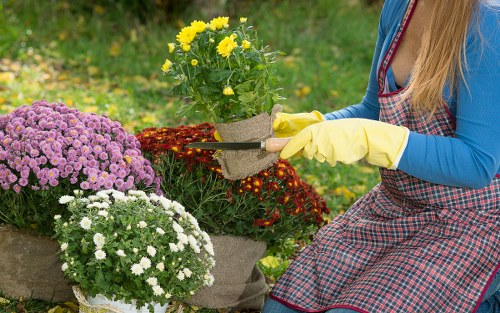
Gardening in Beacon Hill is enhanced by a strong sense of community and opportunities for networking with fellow enthusiasts.
Joining local gardening clubs or attending community events can provide valuable insights, tips, and shared resources. These interactions foster a collaborative environment where gardeners can learn from each other and celebrate their successes.
Additionally, community gardens offer a platform for individuals to cultivate their plots while contributing to a larger green initiative, promoting social interaction and collective growth.
Gardening Tools and Equipment for Beacon Hill Gardens
[IMG_11]Having the right tools and equipment is essential for efficient and enjoyable gardening. Here are some must-have items for Beacon Hill gardeners:
- Hand Tools: Essential tools include trowels, pruners, and hand forks for planting and maintenance.
- Watering Equipment: Invest in durable hoses, watering cans, and irrigation systems to ensure your plants receive adequate moisture.
- Soil Amendments: High-quality compost, fertilizers, and mulch help maintain soil health and fertility.
- Protective Gear: Gloves, hats, and aprons protect you while you work and keep your tools clean.
Using the right tools can make gardening tasks easier and more efficient, allowing you to focus on nurturing your plants.
Innovative Gardening Techniques
[IMG_12]Embracing innovative gardening techniques can elevate your Beacon Hill garden to new heights.
Vertical Gardening
Maximize space by growing plants vertically using trellises, wall-mounted planters, and hanging baskets. This technique is especially beneficial for urban gardeners with limited space.
Hydroponics
Hydroponic systems allow you to grow plants without soil, using nutrient-rich water solutions. This method is efficient and can be set up indoors or outdoors.
Companion Planting
Pairing compatible plants together can enhance growth, deter pests, and improve overall garden health. For example, planting basil alongside tomatoes can boost flavor and repel insects.
Permaculture
Permaculture focuses on designing sustainable and self-sufficient garden ecosystems that mimic natural processes. This approach promotes biodiversity and reduces the need for external inputs.
Seasonal Planting Calendars
[IMG_13]Creating a seasonal planting calendar helps you stay organized and ensures timely planting and maintenance:
- Spring: Plant cool-season vegetables, flowering bulbs, and annuals.
- Summer: Focus on heat-tolerant plants, regular watering, and pest control.
- Autumn: Harvest crops, prepare beds for winter, and plant fall-blooming species.
- Winter: Plan next year’s garden, maintain tools, and protect sensitive plants.
Adhering to a planting schedule maximizes garden productivity and ensures plants thrive in their respective seasons.
Gardening Challenges in Beacon Hill
[IMG_14]While gardening in Beacon Hill is rewarding, it comes with its set of challenges:
- Pest Management: Urban environments can attract various pests. Implementing organic pest control methods can mitigate infestations.
- Limited Space: Maximizing small spaces with vertical gardening or container planting can overcome space constraints.
- Soil Contamination: Ensuring clean soil through testing and using raised beds can prevent contamination issues.
- Weather Extremes: Protecting plants from sudden weather changes with appropriate coverings and shelters is essential.
Addressing these challenges proactively ensures a resilient and flourishing garden.
Maintaining Your Beacon Hill Garden
[IMG_15]Regular maintenance is key to a healthy garden. Here are some maintenance tasks to keep your garden in top shape:
- Weeding: Remove weeds promptly to prevent them from competing with your plants for nutrients and water.
- Watering: Consistent watering, especially during dry spells, ensures plants remain hydrated and healthy.
- Fertilizing: Provide necessary nutrients through regular fertilization to support plant growth.
- Pruning: Trim overgrown branches and remove dead foliage to encourage new growth and maintain plant shape.
Staying on top of these tasks ensures your Beacon Hill garden remains vibrant and thriving throughout the year.
Conclusion: Embrace the Green Life in Beacon Hill
[IMG_16]Gardening in Beacon Hill offers a unique opportunity to cultivate beautiful and sustainable green spaces within an urban setting. By understanding the local climate, selecting the right plants, and utilizing effective gardening techniques, you can create a thriving garden that enhances your lifestyle and contributes to the community’s beauty.
Whether you’re tending to a balcony garden, a backyard oasis, or participating in a community plot, the rewards of gardening are manifold. From the joy of watching plants grow to the satisfaction of creating a serene environment, Gardening in Beacon Hill is a fulfilling endeavor.
Ready to transform your space? Contact us today to start your gardening journey in Beacon Hill!
